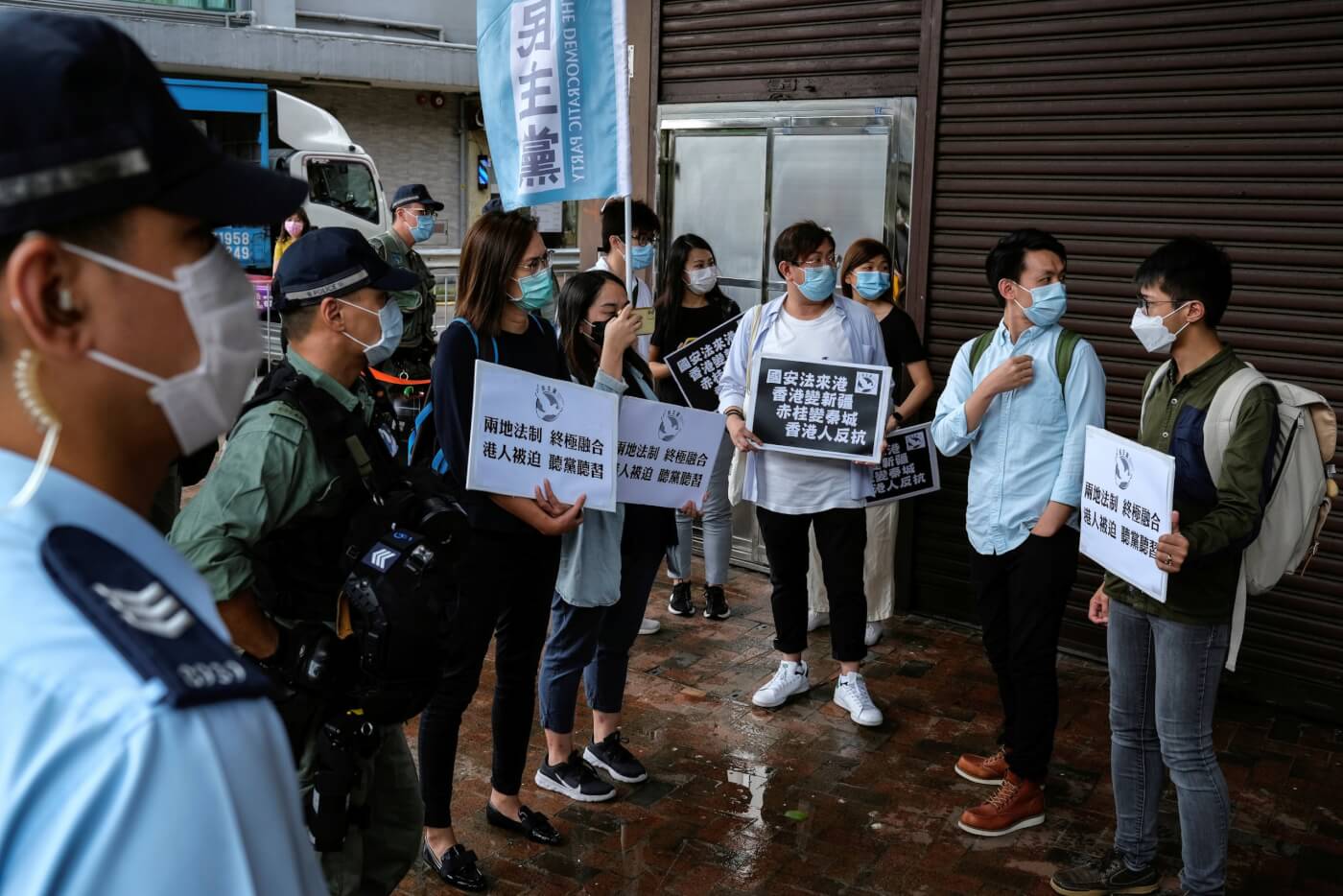Today, 22 May 2020, a proposal to impose national security laws in Hong Kong was unveiled which could see mainland intelligence agencies set up bases in the global financial hub, raising fears of direct enforcement by Chinese authorities in the city and the prospect of fresh protests. The proposal comes a day after Beijing proposed the new controversial national security legislation that critics see as an historical turning point for China’s freest city.
China’s proposal would bar subversion, separatism or acts of foreign interference against the central government and would allow the central government to set up “security organs” in the territory, according to a draft decision.
In China, sweeping national security laws have been used to target human rights activists, lawyers, journalists and pro-democracy campaigners. Nobel Peace Prize laureate Liu Xiaobo, who died in 2017 after more than a decade behind bars, was convicted of “inciting subversion of state power.”
The law to ban “treason, secession, sedition and subversion” could bypass Hong Kong’s lawmakers and was submitted at the annual National People’s Congress (NPC), which largely rubber-stamps decisions already taken by the Communist leadership, but is still the most important political event of the year.
Local pro-democracy lawmakers denounced the plans on Thursday night as “the end of Hong Kong”.
After last year’s wave of sustained and violent protest, Beijing is now attempting to push them through, arguing “law-based and forceful measures” must be taken to “prevent, stop and punish” such protests in the future. Beijing may also fear September’s elections to Hong Kong’s legislature.
The “draft decision” – as it is known before approval by the NPC – was explained by Wang Chen, vice chairman of the Standing Committee of the NPC. He said the security risks had become “increasingly notable” – a reference to last year’s protests.
“Considering Hong Kong’s situation at present, efforts must be made at the state-level to establish and improve the legal system and enforcement mechanisms,” the vice chairman is quoted as saying in state media.
Hong Kong activists are calling for people to rise up against the proposal and appeals have emerged for flash mobs at night across the territory and democracy activists including Joshua Wong plan to meet the press to announce “street action” later today.
“Beijing is attempting to silence Hong Kongers’ critical voices with force and fear,” pro-democracy activist Joshua Wong tweeted. “Deep down protesters know, we insist not because we are strong, but because we have no other choice.”
On Friday, Carrie Lam, Hong Kong’s leader, gave the government’s support for the legislation, which she said was “undoubtedly within the purview of the central authorities”. Lam said violence associated with the protest movement had been escalating, as had the risk of terrorism, and the law targeted “exactly the situations which the political and business sectors in Hong Kong and members of the public have been worrying about over the past year”.
The laws “will not affect the legitimate rights and freedoms” of Hong Kong residents, or the independence of the judiciary, Lam said.
The call for renewed protests hit financial markets, with Hong Kong stocks selling off as China’s parliament sat to discuss the new law. Hong Kong’s Hang Seng index closed 5.6% down, the largest daily percentage drop since July 2015.
News of China’s plan has prompted broad international condemnation and could heighten tensions between Beijing and Washington, whose relationship is already frayed by trade disputes and reciprocal accusations over the pandemic. The US Senate majority leader, Mitch McConnell, said any further crackdowns from Beijing would “only intensify the Senate’s interest in re-examining the US-China relationship”. The US senators Marco Rubio and Cory Gardner, and the chairman of the Senate committee on foreign relations, Jim Risch, said it would begin “an unprecedented assault against Hong Kong’s autonomy”.
US President Donald Trump warned Washington would react “very strongly” if Beijing went ahead with the security law.
The UK’s Foreign and Commonwealth Office said it was “following reports and monitoring the situation closely”.
“We expect China to respect Hong Kong’s rights and freedoms and high degree of autonomy. As a party to the [Sino-British] Joint Declaration, the UK is committed to upholding Hong Kong’s autonomy and respecting the ‘One Country, Two Systems’ model,” a statement said.
Nathan Law, a former lawmaker and leader of the 2014 protests, called on people not to give up entirely:
“At this time last year, didn’t we all think the extradition law would definitely be passed? Hong Kong people can always create miracles.”

